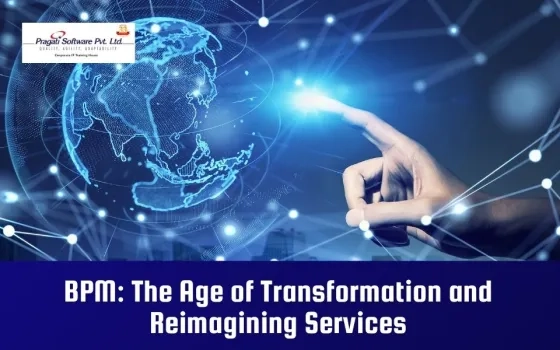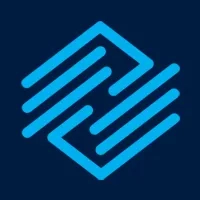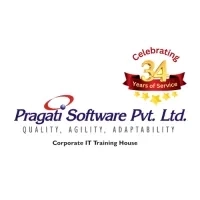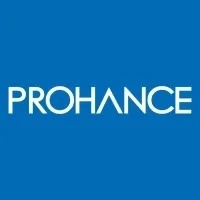
NASSCOM staff writer in conversation with Rohit Kapoor, Vice Chairman & Chief Executive Officer, EXL Services.
Please tell us about your journey, Mr Kapoor.
It’s a rather fascinating one that began over 17 years ago. It is one about building up from scratch, facing challenges and growing from strength to strength, characterized by the high entrepreneurial energy brought in by the founders – Vikram Talwar and myself.
Within two years of starting up, EXL became acquired by Conseco, an American insurance company. By then, EXL already boasted of running 100 different processes and had 1,000 FTEs on its rolls. Within a short span of 12-18 months its infrastructure and managerial capabilities had built a sizable reputation and outshone many competitors, so it made perfect sense for Conseco to make the acquisition. Thereafter, EXL functioned as a captive unit and serviced a few third-party clients as well.
However, major changes were coming. Conseco filed for bankruptcy in 2002 after a severe financial upheaval. At this juncture, Vikram and I made a rather intelligent move by buying ourselves out and partnering with Oakhill Capital and FTV Capital in parallel. This was not just a smart move, but a courageous one as well. At that point, 95% of our revenue came from Conseco, and it was all terminated in a matter of three months.
It was time to start all over again, but with a big difference. By then EXL had gained considerable mastery over the insurance domain, which would prove to be a winning bet even decades later. There were 1,500 people on our rolls – and to the management’s credit no one lost their jobs. Those challenging months were extremely hard, but they provided an opportunity for cross-training which held the company in good stead. It may be worthwhile for present-day startups to take a leaf out of our book when faced with existential challenges.
As the commonly known adage goes, business is powered by robust fundamentals. EXL proved that rule right. Not only did it weather the storm, but it also grew its business back in a very short time. In the years to come, insurance would prove to be our dominant business segment. Even today, it has a very high share of 50% of our business. Building a deep knowledgebase on specific domains has been the company’s hallmark and one of the core competencies it swears by even today.
In 2006 the company went public and became listed on NASDAQ, celebrating its tenth anniversary as a publicly traded company last year. I have every reason to be most happy the way this turned out. EXL is now a 750 million dollar company in terms of annual revenue, employing 26,000 employees spread across 38 global centres in India, Philippines, Eastern and Central Europe, Romania, Bulgaria, Czech Republic, South Africa, Columbia and the United States. It has both a global footprint and a very strong Indian heritage.
But back to the Conseco part of the narrative, that experience left a deep imprint. At that time, there were severe challenges around finding and keeping the right talent. As can be expected, competitors tried to poach our key talent because the company was constrained. The learning curve was very steep for us back then. However, it demonstrated that the way you treat employees during difficult times is crucial, as this is when the distinct character of an organization takes shape. Some old timers speak about those times today to inspire the younger generation.
What’s the kind of talent that you hire? What are some of the steps that you take to ensure a healthy pipeline? How does India measure up globally from a talent standpoint?
Simply put, people are mission critical for driving business. EXL has two major business lines: operations management or traditional BPM which constitutes 75%, and analytics which provides balance at 25%. The talent hired for both these lines of businesses are different.
For analytics, EXL hires close to 500 people every year, of which 100 are from top-notch engineering colleges like the IITs and the top 3 IIMs. It has premium positioning among students as a Day 0 hirer with a remarkable acceptance rate of 90%. This has been made possible by over a decade of sustained engagement with these institutions. In addition, the senior leadership team members come from premier institutions themselves, which has only strengthened the brand’s positioning. I’m an alumnus of IIT Delhi and IIM A, and regularly tap into their network to help build a robust team.
In operations management, the hires are usually college graduates with 1-3 years of work experience and the potential to become industry specialists. EXL invests significantly in training, development and certification for these employees.
Indian talent is hardworking, intelligent and stands out globally. We’re currently working on further bolstering their communication skills and the ability to apply knowledge contextually to pave the way towards many more global careers. Many employees based out of India independently run P&Ls. The company’s forte is diversity, with teams often comprised of members from all across the globe. This is what EXL’s foundational bandwidth is all about.
What kind of investments have you made in digital? Please share your thoughts on insights generated from mountainous data that you possess, such as your comment on how “data is the new oil.”
It started 11 years back when EXL invested in a data analytics company called Inductus. Today, EXL’s 2,800 analytics employees put this focus is at an altogether different scale. 25% of revenue is driven by analytics. There are five distinct areas where the company creates value through analytics:
- Data
- Data management and architecture
- Predictive modelling
- Insights generation
- Executable strategy
EXL has a proprietary database of 250 million American consumer records of consumers – demographics, credit rating, purchasing habits, home insurance, social engagement and more. This mammoth-sized database can be married with the client’s records to draw out far deeper insights than what is ordinarily possible. In addition, data management and architecture can provide a unified view of the customer by cleansing the database to render more powerful and effective data visualisation. Internal systems are also in place that can capture data pertaining to employees, which is of great use as the organisation expands.
Most organisations are able to work efficiently with structured data, but EXL can do the same with unstructured data as well. Unstructured data generates 90% of all data in the form of voice calls, text communications, emails, scribbled notes and other forms that aren’t easily analysed. For this type of data, our machine learning algorithms can render continuous learning and deep insights.
The focus on RPA is very strong. EXL already has 40-50 industry-specific proprietary bots for areas including insurance, BFSI, travel and elsewhere. It has also partnered with RPA firms like Automation Anywhere, Blue Prism and LISS Systems to draw on their complementary skills and provide better client experiences. A high investment in digital technologies will help the company leapfrog to higher levels of growth, productivity and enhanced customer experiences.
Would you like to share your thoughts on EXL’s organisational culture?
A few key attributes define EXL’s culture: entrepreneurial, diverse, team-oriented and innovative. This kind of an environment provides a natural fit for members of Gen Y, who like to experiment with new ideas and prefer autonomy over hierarchy. This open mindedness has led to forays into new geographies and services. There’s a hard push for different disciplines to come together and create valuable outcomes, leading to several instances where people experimented with mixing traditional BPM operations management with cognitive processes to deliver better outcome.
What has been your experience in working collaboratively?
A case in point is how EXL approaches acquiring smaller companies with a niche digital focus. After these acquisitions, we have successfully retained talent from the acquired companies. The focus is always on creating a favourable environment where bright minds can experiment with new ideas and deliver greater value.
What business pivots have had the greatest impact, and what is your leadership mantra?
For business pivots, three things have shaped EXL as a company:
- A very strong focus on building domain expertise.
- Deploying analytics has a profound impact on the quality of delivery.
- An extreme focus on talent. For a company to grow, it is imperative to have world class talent. That’s the best bet to negotiate a VUCA environment.
My leadership mantra is simple: Put the client over everything else – even if that means cannibalizing certain service lines.
To read more interviews, follow leader talk

























